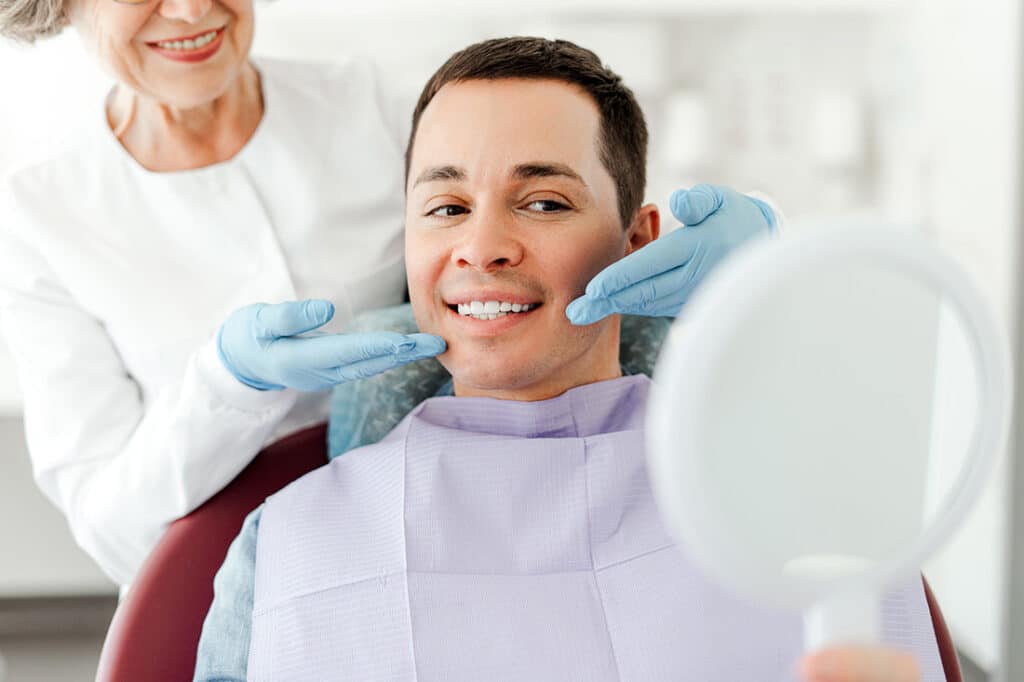Teeth Cleaning in Nashua, NH
Brushing and flossing your teeth every day isn’t always enough to keep your teeth clean. Coffee and tea use can leave stains that are difficult to remove with simple brushing, and tartar always manages to find a place to reside in your mouth. A hygiene appointment for a scale and polish should be scheduled at least once a year to eliminate both superficial stains and tartar. If you’re looking for teeth cleaning in Nashua, NH, we’re here to help.
Below, we explain what a dental cleaning is, why it’s done, and how it’s done and provide answers to some frequently asked dental hygiene questions.
What is a scale and polish hygiene appointment?
A dental cleaning is a basic treatment that is used to improve oral health, remove tartar and plaque, and scale teeth. This operation should always be performed by a qualified dentist or dental hygienist, who will almost probably refer to it as a “hygiene appointment,” as this is the term used in the dentistry industry.
What is the purpose of a scale and polish?
Even if you brush and floss your teeth regularly, professional teeth cleaning sessions can significantly impact your oral health. But why are frequent dental hygiene appointments so important?
Oral hygiene can help you avoid problems like cavities, gingivitis, receding gums, and periodontitis. It should be used in conjunction with everyday oral hygiene rather than as a replacement.
Professional teeth cleaning also aids in the removal of tartar and other stains that are more difficult to eliminate with basic brushing.
What happens during the dental cleaning procedure?
This operation should always be performed by a dentist, who will conduct an examination, inspect each tooth, and verify your gingival health. This will assist you in determining whether the patient requires hygiene and what aspects should be considered throughout the procedure.
After determining that the patient requires cleaning, the professional will begin the teeth cleaning process, which is divided into two parts: using dental cleaning devices such as ultrasonic teeth cleaning and cleaning with prophylaxis paste.
Ultrasonic teeth cleaning is the first step in the treatment. For this procedure, a cavitator is used. A cavitator is a piece of dental cleaning equipment with a vibrating tip that expels water. The gingival edges are irrigated with pressurized water, removing and dislodging tartar or calculus. Surface stains from food, tea, coffee, and cigarettes can also be removed with the help of water pressure and vibration.
After the dentist has passed the cavitator over all teeth, a revolving brush is used to disseminate the prophylaxis paste. This paste aids in the removal of stains as well as bacterial plaque.
If the dentist determines that the patient’s daily dental hygiene may be improved after this procedure, they will give them instructions and recommendations for keeping proper hygiene at home.
Teeth Cleaning in Nashua FAQs
For more information on Dental Cleanings in Nashua, NH call (603) 883-6010 today!

